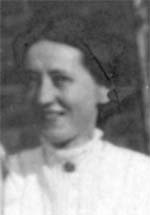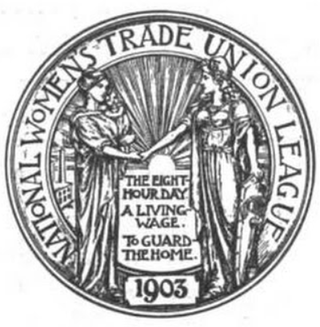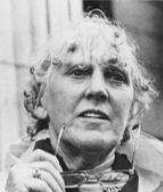Related Research Articles

A sweatshop or sweat factory is a crowded workplace with very poor, socially unacceptable or illegal working conditions. The manual workers are poorly paid, work long hours, and experience poor working conditions. Some illegal working conditions include poor ventilation, little to no breaks, inadequate work space, insufficient lighting, or uncomfortably/dangerously high or low temperatures. The work may be difficult, tiresome, dangerous, climatically challenging, or underpaid. Workers in sweatshops may work long hours with unfair wages, regardless of laws mandating overtime pay or a minimum wage; child labor laws may also be violated. Women make up 85 to 90% of sweatshop workers and may be forced by employers to take birth control and routine pregnancy tests to avoid supporting maternity leave or providing health benefits. The Fair Labor Association's "2006 Annual Public Report" inspected factories for FLA compliance in 18 countries including Bangladesh, El Salvador, Colombia, Guatemala, Malaysia, Thailand, Tunisia, Turkey, China, India, Vietnam, Honduras, Indonesia, Brazil, Mexico, and the US. The U.S. Department of Labor's "2015 Findings on the Worst Forms of Child Labor" found that "18 countries did not meet the International Labour Organization's recommendation for an adequate number of inspectors."

Troy is a city in the U.S. state of New York and the county seat of Rensselaer County. The city is located on the western edge of Rensselaer County and on the eastern bank of the Hudson River. Troy has close ties to the nearby cities of Albany and Schenectady, forming a region popularly called the Capital District. The city is one of the three major centers for the Albany metropolitan statistical area, which has a population of 1,170,483. At the 2020 census, the population of Troy was 51,401. Troy's motto is Ilium fuit, Troja est, which means "Ilium was, Troy is".

A domestic worker or domestic servant is a person who works within a residence and perform a variety of household services for an individual, from providing cleaning and household maintenance, or cooking, laundry and ironing, or care for children and elderly dependents, and other household errands. The term "domestic service" applies to the equivalent occupational category. In traditional English contexts, such a person was said to be "in service".

The Equal Pay Act of 1963 is a United States labor law amending the Fair Labor Standards Act, aimed at abolishing wage disparity based on sex. It was signed into law on June 10, 1963, by John F. Kennedy as part of his New Frontier Program. In passing the bill, Congress stated that sex discrimination:
Equal pay for equal work is the concept of labour rights that individuals in the same workplace be given equal pay. It is most commonly used in the context of sexual discrimination, in relation to the gender pay gap. Equal pay relates to the full range of payments and benefits, including basic pay, non-salary payments, bonuses and allowances. Some countries have moved faster than others in addressing equal pay.

Leonora O’Reilly was an American feminist, suffragist, and trade union organizer. O'Reilly was born in New York state, raised in the Lower East Side of New York City. She was born into a working-class family and left school at the age of eleven to begin working as a seamstress. Leonora O’Reilly’s parents were Irish immigrants escaping the Great Famine; her father, John, was a printer and a grocer and died while Leonora was the age of one, forcing her mother, Winifred Rooney O’Reilly, to work more hours as a garment worker in order to support Leonora and her younger brother.

A migrant worker is a person who migrates within a home country or outside it to pursue work. Migrant workers usually do not have the intention to stay permanently in the country or region in which they work.

A pink-collar worker is someone working in the care-oriented career field or in fields historically considered to be women's work. This may include jobs in the beauty industry, nursing, social work, teaching, secretarial work, upholstery, or child care. While these jobs may also be filled by men, they have historically been female-dominated and may pay significantly less than white-collar or blue-collar jobs.

The United States Women's Bureau (WB) is an agency of the United States government within the United States Department of Labor. The Women's Bureau works to create parity for women in the labor force by conducting research and policy analysis, to inform and promote policy change, and to increase public awareness and education.

The New York shirtwaist strike of 1909, also known as the Uprising of the 20,000, was a labour strike primarily involving Jewish women working in New York shirtwaist factories. It was the largest strike by female American workers up to that date. Led by Clara Lemlich and the International Ladies' Garment Workers' Union, and supported by the National Women's Trade Union League of America (NWTUL), the strike began in November 1909.

The Lowell mill girls were young female workers who came to work in textile mills in Lowell, Massachusetts during the Industrial Revolution in the United States. The workers initially recruited by the corporations were daughters of New England farmers, typically between the ages of 15 and 35. By 1840, at the height of the Textile Revolution, the Lowell textile mills had recruited over 8,000 workers, with women making up nearly three-quarters of the mill workforce.

Harmony Mills, in Cohoes, New York, United States, is an industrial district that is bordered by the Mohawk River and the tracks of the former Troy and Schenectady Railroad. It was listed as Harmony Mills Historic District on the National Register of Historic Places in 1978. A portion of the district encompassing the industrial buildings and some of the housing built for millworkers was declared a National Historic Landmark in 1999. The centerpiece building, Harmony Mill No. 3 was listed on the National Register of Historic Places in 1971.

The Kate Mullany House was the home of Kate Mullany (1845–1906), an early female labor leader who started the all-women Collar Laundry Union in Troy, New York in February 1864. It was one of the first women's unions that lasted longer than the resolution of a specific issue. It is located at 350 8th Street in Troy, just off NY 7 one empty lot east of the Collar City Bridge.
Kate Mullany (1845–1906) was an American early female labor leader who started the all-women Collar Laundry Union in Troy, New York in February 1864. It was one of the first women's unions that lasted longer than the resolution of a specific issue.

Eva McDonald Valesh was an American journalist and labor rights activist. Valesh was an activist for, and reported on conditions of laborers in Minnesota's garment factories. She was also a speaker for the Knights of Labor movement and the National Farmer's Alliance.
The Laundry Workers Industrial Union was a labor union affiliated with the Communist Party's Trade Union Unity League during the early 1930s. Established in 1931, the union organized laundry workers in New York City, and later became part of the non-Communist Amalgamated Clothing Workers of America. The union's membership was primarily African American and Afro-Caribbean women.

The National Federation of Women Workers (NFWW) was a trade union in the United Kingdom of Great Britain and Ireland active in the first part of the 20th century. Instrumental in winning women workers the right to a minimum wage for the first time, the NFWW broke down barriers for women's membership in trade unions in general.

Women in labor unions have participated in labor organizing and activity throughout United States history. These workers have organized to address issues within the workplace, such as promoting gender equality, better working conditions, and higher wages. Women have participated in unions including the Collar Laundry Union, the WTUL, the IWW, the ILGWU, and the UAW.

Mary "Mai" Clifford was an Irish trade unionist and laundress, and the first woman president of the Dublin Council of Trade Unions.
The Atlanta washerwomen strike of 1881 was a labor strike in Atlanta, Georgia involving African American washerwomen. It began on July 19, 1881, and lasted into August 1881. The strike began as an effort to establish better pay, more respect and autonomy, and a uniform base salary for their work.
References
- ↑ Hornbeck, Leigh (May 14, 2016). "Troy's Kate Mullany, Irish immigrant who organized first women's union, inducted to labor hall of fame". Times Union . Retrieved January 29, 2021.
- ↑ Cobb, Geoffrey (June 2, 2020). "Mullany made women's labor history". The Irish Echo . Retrieved January 29, 2021.
- ↑ Halligan, Lauren (February 20, 2014). "RCHS to honor Troy woman who formed Collar Laundry Union 150 years ago". The Record . Retrieved January 29, 2021.
- ↑ Lucas, Dave (March 14, 2016). "Mullany House Restoration Nearly Complete". WAMC . Retrieved January 29, 2021.